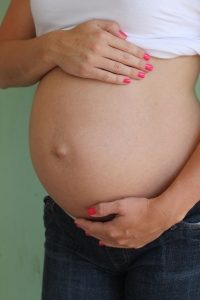Eating Disorders And Pregnancy

How Do Eating Disorders Affect Pregnancy?
Eating disorders can affect pregnancy in a number of ways including premature labor, low birth weight, stillbirth, delayed fetal growth, miscarriage and labor complications. Women who suffer specifically from bulimia will often gain excess weight during pregnancy, which places them at risk for hypertension. Laxatives, diuretics and other medications can be especially harmful for the development of the fetus. It could also lead to fetal abnormalities.
Women with eating disorders during pregnancy can face increased risks when they carry a child like their body diverting nutrition to their child, have an increased risk of miscarriage, have an increased risk of delivering small babies with smaller heads, prone to anaemia and take longer to recover from caesarean.
Preventing Eating Disorders From Affecting A Child
Prior to pregnancy, it’s important that a person with an eating disorder achieve and maintain a healthy weight, avoid purging and meet with a nutritionist. Naturally, it would be ideal to address an eating disorder before pregnancy in order to prevent harm to the patient or fetus.
During pregnancy, a woman can strive for a healthy weight gain, eat well-balanced meals and avoid purging. After pregnancy, one could contact a lactation consultant, find a nutritionist who can help with weight management, invest in one’s child and seek help for the eating disorder.
Fertility and Eating Disorders
Eating disorders can effect a woman’s fertility and reduce her chances of conceiving. Women with anorexia and bulimia often don’t have menstrual cycles, which is caused by reduced calorie intake, excessive exercise and psychological stress. Because of this, not having regular periods can make getting pregnant extremely challenging.
Source: She Knows
 Eating Disorder Self Test. Take the EAT-26 self test to see if you might have eating disorder symptoms that might require professional evaluation. All answers are confidential.
Eating Disorder Self Test. Take the EAT-26 self test to see if you might have eating disorder symptoms that might require professional evaluation. All answers are confidential.